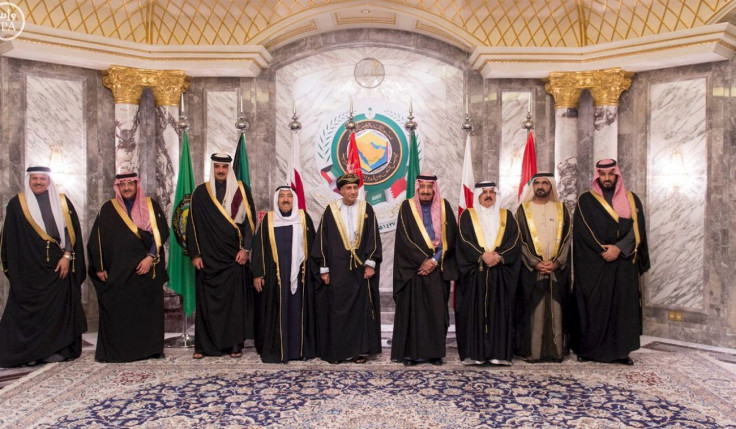Gulf Arab Leaders Push For EU-Style ‘Middle East Union’ At GCC Summit

Gulf leaders are working on the formation of an EU-style union for the Middle East. Leaders at the 46th Gulf Cooperation Council (GCC) summit in Riyadh Thursday pushed for a borderless union, apparently inspired by the European Union.
The GCC green-signalled the proposal with the hope that more countries would join. The summit focused on the social, political, economic and security integration of the gulf countries.
The GCC summit, held under the leadership of Saudi King Salman, issued a communiqué to state that Gulf leaders were going to complete the remaining requirements for a common market among the GCC countries.
"Decisive measures have been taken to simplify the customs procedures at border check points in a bid to remove them ultimately," the Khaleej Times quoted GCC Secretary-General Abdul Latif Al Zayani as saying.
The GCC secretary-general said the council talked about the Yemen situation as well.
"The council members called for an international conference for Yemen reconstruction after the parties reach the aspired political solution," Al Zayani said.
According to the GCC leaders, Islam is a religion of moderation and tolerance. "Terrorism has no religion, and our tolerant religion rejects it," they said.
Meanwhile, the leaders condemned racist remarks against Syrian refugees and Muslims in general.
“We were surprised by the results of the referendum on banning the minarets in the Swiss Federation, and the inclination of some countries to support this tendency, which indicates an unacceptable approach and discrimination against Islam and Muslims,” the communiqué said.
The criticism about racism against Muslims comes after Republican presidential candidate Donald Trump asked for a ban on the entry of Muslims to the United States.
© Copyright IBTimes 2024. All rights reserved.











